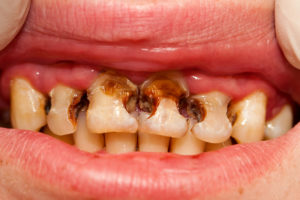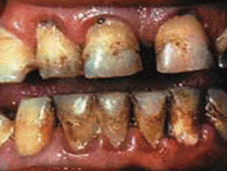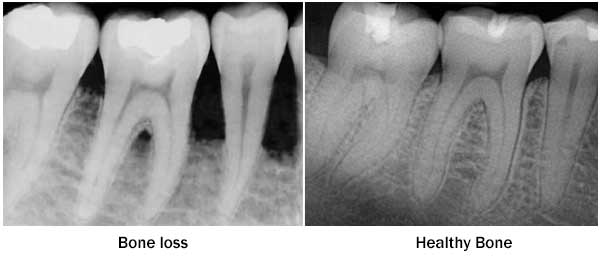
Per an article from the Centers for Disease Control and Prevention (CDC), Cigarette smoking is the leading cause of preventable disease and death in the United States and it is estimated that over 37.8 million adults in the United States smoke cigarettes.
Smoking can also take quite a toll on the health of your teeth and smile.
Smokers can be detected by bad breath and the tobacco stains on their teeth. However, bad breadth can be covered up by mints, gum or breath fresheners and today tobacco stains can be handled using in-home whitening treatments – or for even better results, dental office whitening treatments. But neither mints nor whitening treatments will handle the long-term damaging effects that smoking can have on your teeth and oral health.
DRY MOUTH & TOOTH DECAY

Smoking can cause dry mouth. Dry mouth occurs when the salivary glands in the mouth don’t make enough saliva to keep your mouth wet; hence the mouth will feel dry. Some of the roles of saliva in the mouth are: lubrication, dilution of sugars, antimicrobial and cleansing activity, aiding in tissue repair, and remineralization of enamel with calcium and phosphates. So when the mouth is dry there is not enough saliva to carry out these functions. This can result in bacteria growing out of control causing cavities.
GUM DISEASE

Smoking decreases the amount of oxygen in the blood and thereby to the mouth. This can cause two problems:
1) Because oxygen is vital to preventing and healing infections, when there is less oxygen in the blood due to smoking, infections can get out of control causing gum disease.
2) Smoking causes a constriction of blood vessels. Therefore a smoker experiences less inflammation and bleeding even when gum disease may be present. This can give a false security that the gums are okay when in fact they are not.
BONE LOSS

Smoking lowers estrogen levels in both men and women. Estrogen is important because it helps the bones hold calcium and other minerals that make them strong.
WHAT SHOULD I DO IF I AM A SMOKER?
Smoking can be a hard habit to quit. Most know of the dangers and harm that comes with smoking (as well as the hefty costs). Whether you quit smoking or not, there are steps you can take to safeguard the health of your teeth and mouth. Here are some suggestions:
- Maintain your oral hygiene. This can be done by brushing at least 3 times a day (preferably after meals) for at least two minutes each time and flossing to remove food particles that get stuck between your teeth that a toothbrush can’t reach.
- Use a fluoride tooth paste to strengthen your teeth, rinse with fluoride mouth wash and get fluoride treatments at your dentist. If you do not want to use fluoride there are natural products that may help. Some suggest products such as neem oil and coconut oil. Others promote that having a healthy diet rich in minerals can help. There are many websites that can help you find something that works best for you. Here is a link to a site providing 5 natural alternatives to fluoride: https://www.globalhealingcenter.com/natural-health/the-5-best-natural-alternatives-to-fluoride-2/
- Use oral probiotics. Oral probiotics help to increase the good bacteria in your mouth which combats the harmful bacteria. There are many products on the market for you to choose from.
- Keep your dental appointments! Depending on the condition of a patient’s teeth and gums we schedule 4-6 months for dental cleaning and exams. This is based on experience and our knowledge of how much damage a decaying tooth or infected gums can cause in just a short period of time. So, don’t put it off. It’s just not worth it in the long run.
At Smile White Dental we feel it is important that you know about the effects some habits can have on your teeth and what steps you can take to ensure you keep that smile as bright and white as ever!
Sincerely,
Dr. Ruth Kenworthy, DDS

